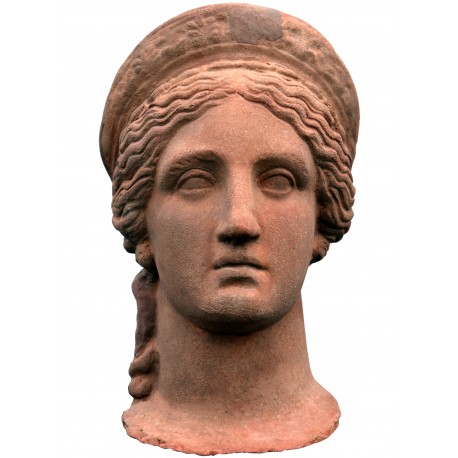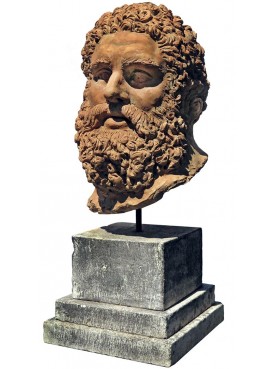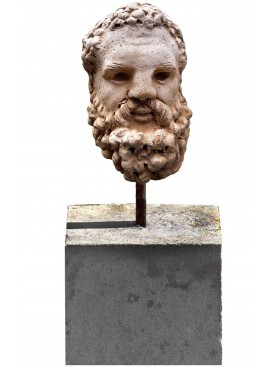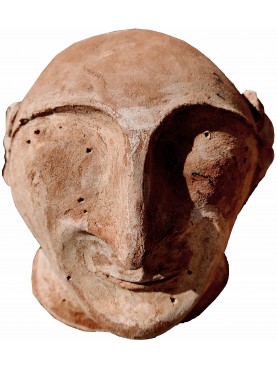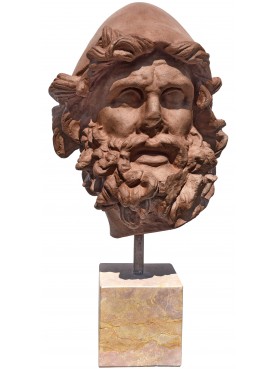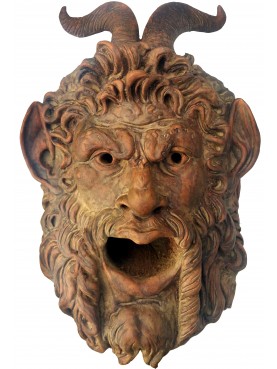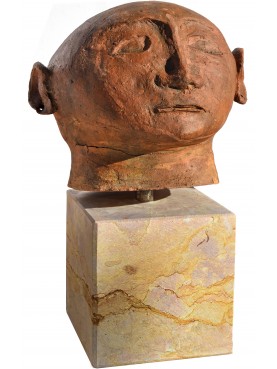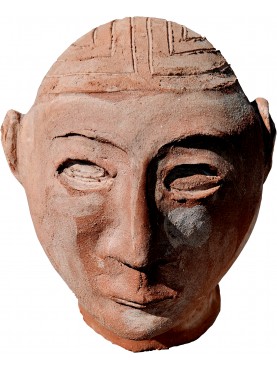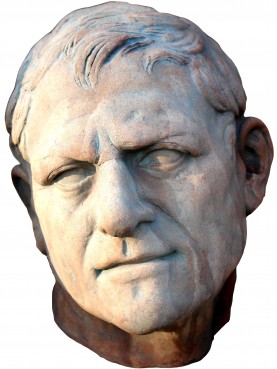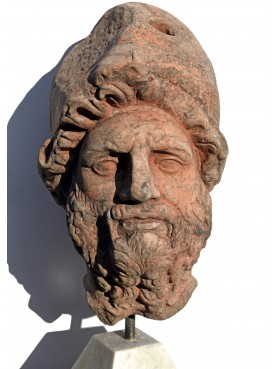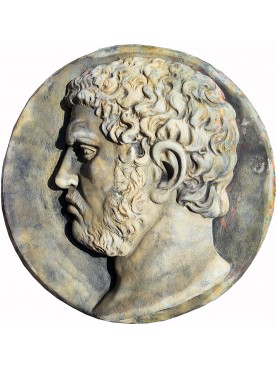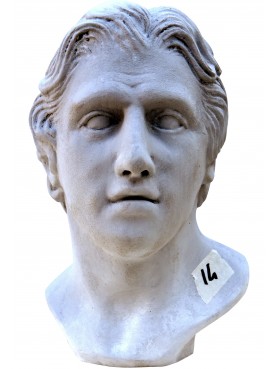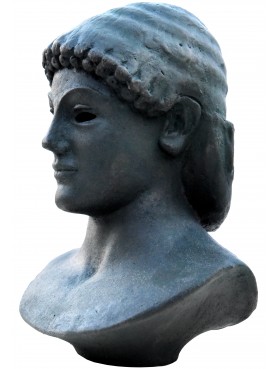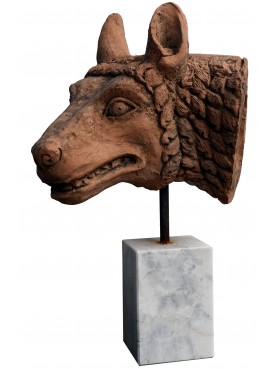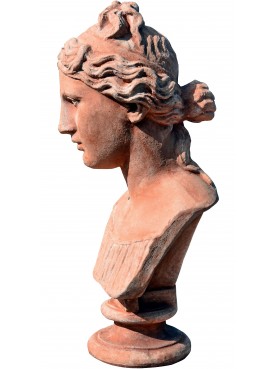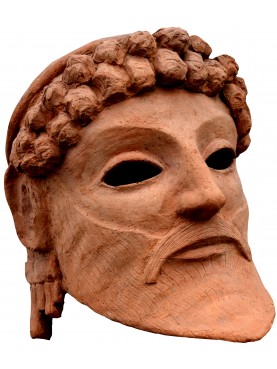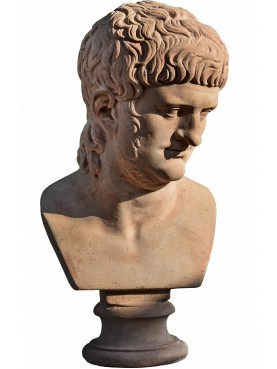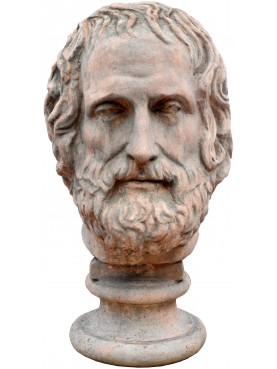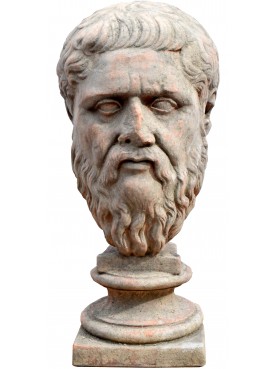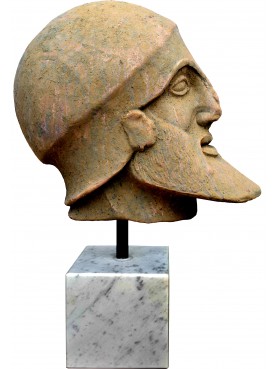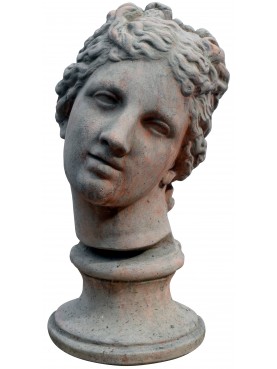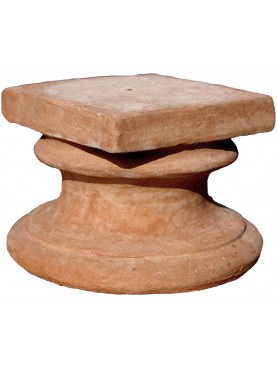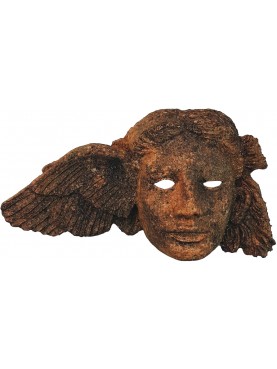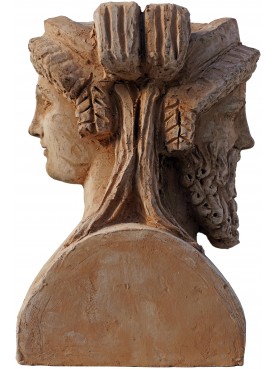Hera terracotta head
Hera terracotta head
New
3 Available
Data sheet
| Height | 9.84 in | 25 cm |
| Width | 6.3 in | 16 cm |
| Depth | 7.09 in | 18 cm |
| Weight | 8.82 lbs | 4 Kg |
| Manufacturing | Tecuperando srl | |
| Material | Terracotta |
More info
Hera is the goddess of women and marriage in Greek mythology and religion. She is the daughter of the Titans Cronus and Rhea.
Hera is married to her brother Zeus and is titled as the Queen of Heaven. One of her characteristics is her jealous and vengeful nature against Zeus's other lovers and offspring and against the mortals who cross her. Hera is commonly seen with the animals she considers sacred including the cow, lion and the peacock. Portrayed as majestic and solemn, often enthroned, and crowned with the polos (a high cylindrical crown worn by several of the Great Goddesses), Hera may hold a pomegranate in her hand, emblem of fertile blood and death and a substitute for the narcotic capsule of the opium poppy. Scholar of Greek mythology Walter Burkert writes in Greek Religion, "Nevertheless, there are memories of an earlier aniconic representation, as a pillar in Argos and as a plank in Samos."
Her counterpart in the religion of ancient Rome was Juno.
The name of Hera may have several of mutually exclusive etymologies; one possibility is to connect it with Greek ὥρα hōra, season, and to interpret it as ripe for marriage and according to Plato ἐρατή eratē, "beloved" as Zeus is said to have married her for love. According to Plutarch, Hera was an allegorical name and an anagram of aēr. So begins the section on Hera in Walter Burkert's Greek Religion. In a note, he records other scholars' arguments "for the meaning Mistress as a feminine to Heros, Master." John Chadwick, a decipherer of Linear B, remarks "her name may be connected with hērōs, 'hero', but that is no help, since it too is etymologically obscure." A. J. van Windekens,[9] offers "young cow, heifer", which is consonant with Hera's common epithet βοῶπις (boōpis, "cow-eyed"). R. S. P. Beekes has suggested a Pre-Greek origin. Her name is attested in Mycenaean Greek written in the Linear B syllabic script, e-ra, appearing on tablets found in Pylos and Thebes.

